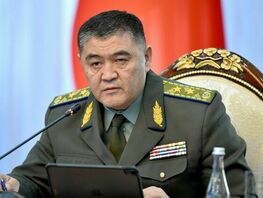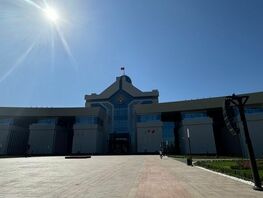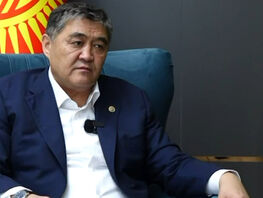The freedom of speech situation in Kyrgyzstan tends to worsen. These are the results of a monitoring by experts of Media Policy Institute.
It is noted that the freedom of speech situation in the country remains difficult due to the increasing pressure from the authorities, who demonstrate intolerance towards alternative opinions and criticism voiced, including through the media.
Challenges such as the mass use of troll farms for online harassment and bullying of activists, journalists and the media have intensified. This, according to analysts, was done in order to divert the attention of society from the fact of investigations to the personalities of the journalists themselves.
The report notes that the top political leadership of the country is consolidating all power in its hands, excluding the system of checks and balances, in fact establishing an authoritarian model of government. This process is accompanied by the manifestation of extreme intolerance towards alternative and critical opinions.
At the same time, officials forget that the existence of an alternative opinion and the ability to freely express it is the basis of law, and it must be protected by the state, which proclaims its commitment to democracy at the highest level. In support of these statements, the authorities and leaders must refrain from infringements and attacks on freedom of speech and pluralism of opinions. Top management must first of all show political maturity and wisdom, refusing to be intolerant of alternative opinions.
The Media Policy Institute believes that, at the suggestion and knowledge of the political leadership of the country, attempts are being made to reduce the space for the work of independent media and journalists through restrictive legislative initiatives and use of various forms of pressure on the press and media workers.
Functions of the punitive apparatus of the state are increasingly used.
«Independent media is an important component of the successful development of the state and its political structure, informing citizens and the world community. The latter was proven during the armed conflict between Kyrgyzstan and Tajikistan in the spring of 2021. Moreover, the state must ensure the protection of media workers and bring to justice all those involved in physical attacks against them. The authorities should refrain from adopting legislative initiatives that could affect freedom of speech and freedom of expression in Kyrgyzstan, and review the legislative measures already taken in this direction,» Media Policy Institute notes.
It is important for the state to create conditions for the active and free work of journalists, to refrain from abusing the functions and capabilities of law enforcement agencies to put pressure on the media.
From the report of Media Policy Institute
The report says that the political leadership and inner circles use the services of troll farms to harass objectionable media, journalists and activists. Unacceptable methods are often used, such as using hate speech, labeling, creating an image of the enemy from objectionable media workers, activists, editorial staff, conspiracy theories. This, in turn, increases the degree of intolerance towards the media, journalists and activists among the society and creates threats to their physical and legal safety.
The practice of using troll farms by the state apparatus for online harassment of objectionable people must be eradicated, since this discredits the media, journalists and activists, increases distrust towards them, provokes the public to unreasonable attacks both online and physical.
From the report by Media Policy Institute
Media experts call on the independent journalistic community of Kyrgyzstan to consolidate their efforts and jointly oppose the attempts of the state to toughen control over the media sphere.
The Media Policy Institute recommends the community of media experts and media organizations to step up their work with donor organizations, international partners and foreign diplomatic missions by developing a common position on pressing issues and constantly informing the parties involved about the situation in the media sphere of the republic.






